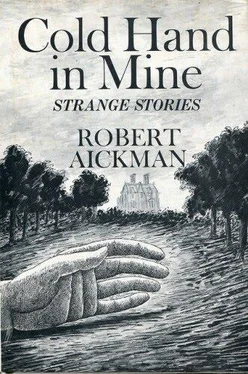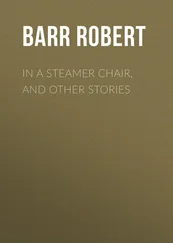6 October. I have been thinking on and off all day about the differences between the ways we are supposed to behave and the ways we actually do behave. And both are different from the ways in which God calls upon us to behave, and which we can never achieve whatever we do and however hard we apply ourselves, as Mr Biggs-Hartley always emphasizes. We seem, every one of us, to be at least three different people. And that's just to start with.
I am disappointed by the results of my little excursion yesterday with Emilia. I had thought that there was so much of which I was deprived by being a girl and so being unable to go about on my own, but now I am not sure that I have been missing anything. It is almost as if the nearer one approaches to a thing, the less it proves to be there, to exist at all. Apart, of course, from the bad smells and bad words and horrid rough creatures from which and from whom we women are supposed to be "shielded". But I am waxing metaphysical; against which Mr Biggs-Hartley regularly cautions us. I wish Caroline were with us. I believe I might feel quite differently about things if she were here to go about with me, just the two of us. Though, needless to say, it would make no difference to what the things truly were — or were not. It is curious that things should seem not to exist when visited with one person, and then to exist after all if visited with another person. Of course it is all just fancy, but what (I think at moments like this) is not?
I am so friendless and alone in this alien land. It occurs to me that I must have great inner strength to bear up as I do and to fulfil my duties with so little complaint. The contessa has very kindly given me a book of Dante's verses, with the Italian on one side and an English translation on the page opposite. She remarked that it would aid me to learn more of her language. I am not sure that it will. I have dutifully read through several pages of the book, and there is nothing in this world that I like more than reading, but Dante's ideas are so gloomy and complicated that I suspect he is no writer for a woman, certainly not for an English woman. Also his face frightens me, so critical and severe. After looking at his portrait, beautifully engraved at the beginning of the book, I begin to fear that I shall see that face looking over my shoulder as I sit gazing into the looking glass. No wonder Beatrice would have nothing to do with him. I feel that he was quite deficient in the graces that appeal to our sex. Of course one must not even hint such a thing to an Italian, such as the contessa, for to all Italians Dante is as sacred as Shakespeare or Dr Johnson is to us. For once I am writing this during the afternoon. I suspect that I am suffering from ennui and, as that is a sin (even though only a minor one), I am occupying myself in order to drive it off. I know by now that I am much more prone to such lesser shortcomings as ennui and indolence than to such vulgarities as letting myself be embraced and kissed by a servant. And yet it is not that I feel myself wanting in either energy or passion. It is merely that I lack for anything or anyone worthy of such feelings, and refuse to spend them upon what is unworthy. But what a "merely" is that! How well I understand the universal ennui that possesses our neighbour, Lord Byron! I, a tiny slip of a girl, feel, at least in this particular, at one with the great poet! There might be consolation in the thought, were I capable of consolation. In any case, I am sure that there will be nothing more that is worth record before my eyes close tonight in slumber.
Later. I was wrong! After dinner tonight, it struck me simply to ask the contessa whether she had ever met Lord Byron. I suppose it might not be a thing she would proclaim unsolicited, either when Papa and Mamma were present, or, for reasons of delicacy, on one of the two rare occasions when she and I were alone; but I thought that I might now be sufficiently simpatica to venture a discreet enquiry.
I fear that I managed it very crudely. When Papa and Mamma had become involved in one of their arguments together, I walked across the room and sat down at the end of the sofa on which the contessa was reclining; and when she smiled at me and said something agreeable, I simply blurted out my question, quite directly. "Yes, mia cara " she replied, "I have met him, but we cannot invite him to our party because he is too political, and many people do not agree with his politics. Indeed, they have already led to several deaths; which some are reluctant to accept at the hands of a straniero, however eminent. "And of course it was the wonderful possibility of Lord Byron attending the contessa's party that had been at the back of my thoughts. Not for the first time, the contessa showed her fascinating insight into the minds of others — or assuredly into my mind.
7 October. The day of the party! It is quite early in the morning and the sun is shining as I have not seen it shine for some time. Perhaps it regularly shines at this time of the day, when I am still asleep? "What you girls miss by not getting up!" as Caroline's Mamma always exclaims, though she is the most indulgent of parents. The trouble is that one always awakens early just when it is most desirable that one should slumber longest; as today, with the party before us. I am writing this now because I am quite certain that I shall be nothing but a tangle of nerves all day and, after everything is over, utterly spent and exhausted. So, for me, it always is with parties! I am glad that the day after tomorrow will be Sunday.
8 October. I met a man at the party who, I must confess, interested me very much; and, beside that, what matters, as Mrs Fremlinson enquires in The Hopeful and the Despairing Heart, almost my favourite of all books, as I truly declare?
Who could believe it? Just now, while I was still asleep, there was a knocking at my door, just loud enough to awaken me, but otherwise so soft and discreet, and there was the contessa herself , in the most beautiful negligée, half-rose-coloured and half-mauve, with a tray on which were things to eat and drink, a complete foreign breakfast, in fact! I must acknowledge that at that moment I could well have devoured a complete English breakfast, but what could have been kinder or more thoughtful on the part of the charming contessa? Her dark hair (but not so dark as with the majority of the Italians) had not yet been dressed, and hung about her beautiful, though sad, face, but I noticed that all her rings were on her fingers, flashing and sparkling in the sunshine. "Alas, mia cara , " she said, looking round the room, with its many deficiencies; "the times that were and the times that are." Then she actually bent over my face, rested her hand lightly on the top of my night-gown, and kissed me. "But how pale you look!" she continued. "You are white as a lily on the altar." I smiled. "I am English," I said, "and I lack strong colouring." But the contessa went on staring at me. Then she said: "The party has quite fatigued you?" She seemed to express it as a question, so I replied, with vigour: "Not in the least, I assure you, Contessa. It was the most beautiful evening of my life" (which was unquestionably the truth and no more than the truth). I sat up in the big bed and, so doing, saw myself in the glass. It was true that I did look pale, unusually pale. I was about to remark upon the earliness of the hour, when the contessa suddenly seemed to draw herself together with a gasp and turn remarkably pale herself, considering the native hue of her skin. She stretched out her hand and pointed. She seemed to be pointing at the pillow behind me. I looked round, disconcerted by her demeanour; and I saw an irregular red mark upon the pillow, not a very large mark, but undoubtedly a mark of blood. I raised my hands to my throat. " Dio Illustrissimo !" cried out the contessa. " Ell'e stregata !" I know enough Italian, from Dante and from elsewhere, to be informed of what that means: "She is bewitched." I leapt out of bed and threw my arms round the contessa before she could flee, as she seemed disposed to do. I besought her to say more, but I was all the time fairly sure that she would not. Italians, even educated ones, still take the idea of "witchcraft" with a seriousness that to us seems unbelievable; and regularly fear even to speak of it. Here I knew by instinct that Emilia and her mistress would be at one. Indeed, the contessa seemed most uneasy at my mere embrace, but she soon calmed herself, and left the room saying, quite pleasantly, that she must have a word with my parents about me. She even managed to wish me " Buon appetito " of my little breakfast.
Читать дальше












